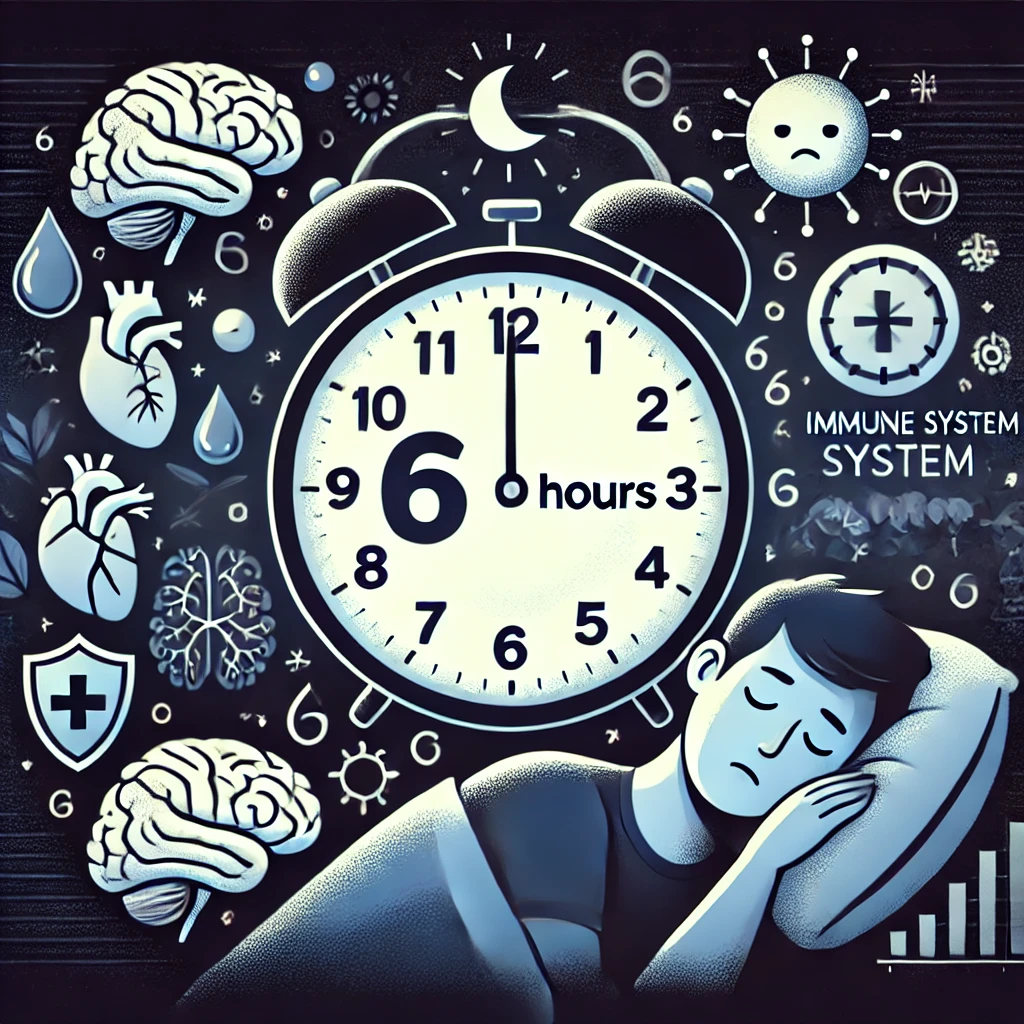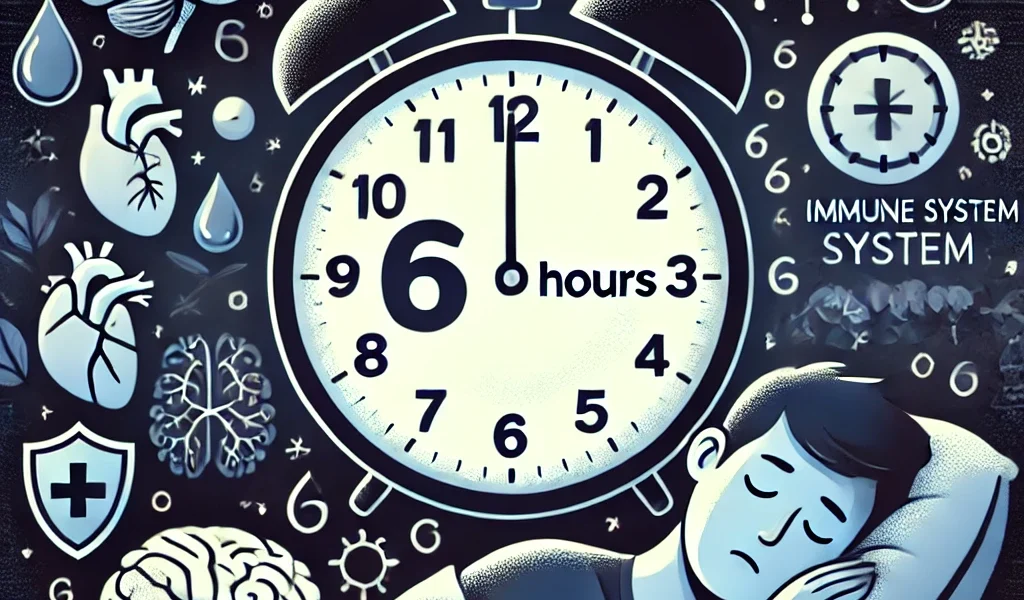“Why Sleeping Only 6 Hours a Night Is Harmful”
Introduction
Many people believe that 6 hours of sleep is enough to function well, but this misconception can lead to significant health problems. Scientific research has shown that inadequate sleep can have serious effects on the brain, immune system, and overall health. In this article, we’ll delve into why getting only 6 hours of sleep per night can be detrimental and what optimal sleep habits you should adopt for a healthier life.

🧠 The Brain’s Need for Sleep
1. Brain Detoxification Occurs During Sleep
- Our brain accumulates toxins and waste products throughout the day. Unlike other cells in our body, the brain doesn’t have a direct system to remove these toxins while awake.
- During deep sleep, the “glymphatic system” becomes active and helps clear out waste products, including beta-amyloid, a protein associated with Alzheimer’s disease.
- Without sufficient sleep, the brain cannot effectively remove these waste products, leading to cognitive impairment and an increased risk of neurodegenerative diseases.
2. Sleep and Memory Consolidation
- Sleep is crucial for memory consolidation and learning. When you sleep less than the recommended 7-8 hours, your ability to process and retain information decreases.
- If you sleep only 6 hours, you might notice difficulties in recalling information or performing tasks that require concentration.
🦠 Sleep Deprivation Weakens the Immune System
1. Immune Function and Cortisol Levels
- Sleep deprivation causes the body to produce more cortisol, the stress hormone. Elevated cortisol levels suppress immune function, making it harder for your body to fight off infections.
- When you don’t get enough sleep, your immune system’s ability to produce protective cytokines is reduced, increasing your risk of illness.
2. Chronic Sleep Deprivation and Health Risks
- Studies show that consistently getting less than 7 hours of sleep can increase your risk of chronic conditions such as diabetes, heart disease, and obesity. Your body’s ability to regulate blood sugar levels and manage inflammation is compromised when you’re sleep-deprived.
⚡ The Impact of Sleep on Energy and Mood
1. Increased Fatigue and Irritability
- People who sleep for only 6 hours are more likely to experience fatigue, irritability, and mood swings. The lack of sleep affects the brain’s ability to regulate emotions and handle stress.
- Over time, this can contribute to mental health issues like anxiety and depression.
2. Reduced Physical Performance
- Sleep is essential for muscle repair and recovery. If you consistently sleep only 6 hours, your physical performance and endurance may suffer. This is especially relevant for athletes or individuals engaged in regular exercise.
🔄 How to Determine Your Optimal Sleep Time
1. The Importance of Finding Your Sleep Sweet Spot
- The recommended sleep time varies from person to person, typically ranging between 7 to 9 hours. Using sleep-tracking devices or apps can help you monitor your sleep patterns and identify how much sleep leaves you feeling most refreshed.
- Keeping a sleep journal for a few weeks can also help determine your optimal sleep duration by recording how you feel upon waking and throughout the day.
2. Use Sleep Cycles to Your Advantage
- A complete sleep cycle lasts about 90 minutes and includes both light and deep sleep stages. To wake up feeling refreshed, aim to sleep for a total number of hours that is a multiple of 1.5 (e.g., 7.5 or 9 hours).
🌿 Tips to Improve Your Sleep Quality
- Maintain a Consistent Sleep Schedule: Go to bed and wake up at the same time every day, even on weekends.
- Create a Relaxing Bedtime Routine: Engage in calming activities before bed, such as reading, meditating, or taking a warm bath.
- Limit Exposure to Blue Light: Avoid screens (phones, tablets, computers) at least an hour before bedtime, as blue light interferes with melatonin production.
- Optimize Your Sleep Environment: Ensure your bedroom is dark, quiet, and at a comfortable temperature to promote deep sleep.
Conclusion
Getting only 6 hours of sleep per night may seem manageable, but it’s far from optimal for maintaining good health. The brain requires adequate sleep to detoxify, consolidate memories, and function efficiently. Similarly, the immune system and overall energy levels suffer when sleep is compromised. By prioritizing your sleep and aiming for 7-9 hours each night, you’ll support your body’s ability to repair, regenerate, and perform at its best.











1 COMMENTS